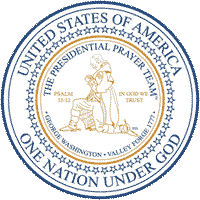
Gather round you people an' a story i will tell
About a brave indian you should remember well
From the tribe of Pima indians, a proud an' a peaceful band
They farmed the Phoenix valley in Arizona land.Down their ditches for a thousand years the sparkling water rushed
Till the white men stole their water rights an' the runnin' water hushed
Now Ira's folks were hungry an' their farms were crops of weeds
But when war came he volunteered and forgot the white man's greed.Call him drunken Ira Hayes he won't answer anymore
Not the whisky drinkin' indian nor the marine who went to war
Yes call him drunken Ira Hayes he won't answer anymore
Not the whisky drinkin' indian nor the marine who went to war.They started Iwo Jima hill, two hundred an' fifty men
But only twenty-seven lived to walk back down the hill again
An' when the fight was over an' old glory raised
One of the men who held it high was the indian Ira Hayes.Call him drunken Ira Hayes he won't answer anymore
Not the whisky drinkin' indian nor the marine who went to war
Yes call him drunken Ira Hayes he won't answer anymore
Not the whisky drinkin' indian nor the marine who went to war.Now Ira returned a hero celebrated throughout the land
He was wined an' speeched an' honored, everybody shook his hand
But he was just a Pima indian, no money, no crops, no chance
An' at home nobody cared what Ira's done an' the wind did the indian's dance.Call him drunken Ira Hayes he won't answer anymore
Not the whisky drinkin' indian nor the marine who went to war
Yes call him drunken Ira Hayes he won't answer anymore
Not the whisky drinkin' indian nor the marine who went to war.And Ira started drinkin' again, jail was often his home
They let him raise the flag and lower it like you throw a dog a bone
He died drunk early one morning alone in a land he fought to save
Two inches of water in a lonely ditch was the grave for Ira Hayes.Call him drunken Ira Hayes he won't answer anymore
Not the whisky drinkin' indian nor the marine who went to war
Yes call him drunken Ira Hayes he won't answer anymore
Not the whisky drinkin' indian nor the marine who went to war.Yes call him drunken Ira Hayes but his land is still as dry
And his ghost is lying thirsty in the ditch where Ira died
Call him drunken Ira Hayes he won't answer anymore
Not the whisky drinkin' indian nor the marine who went to war.
BACK TO:
Marine Corps Links Galore
SIGN MY:
USMC and other services GB
 |
|
Ira Hayes, Pima Tribe, US Marine | US Marine Corps : Valor and Glory | Native Words from long ago | Earth Mother crying : our hurting land | Continents apart : an enigma pondered

Will the Circle Be Unbroken

A fresh memory of old traditions
|
John F. Kennedy, in "A Nation of Immigrants" notes the diverse waves of peoples who streamed to our shores right from the start. Yet for all the diversity, their was a common set of aspirations, and to an extent, a shared heritage. Tocqueville enthused about the rising possibilities of middle class democracy. As Kennedy summarized Tocqueville, "This was the secret of America: a nation of people with the fresh memory of old traditions who dared to explore new frontiers, people eager to build lives for themselves in a spacxious society that did not restrict their freedom of action." John Jay, the man who was to become America's first Chief Justice of the Supreme Court, was himself of French extraction, descended from refugees of religious persecution by the Church-State in the old world. Pleading for the adoption of the Constitution, he argued that Americans were not many peoples, but truly only one. Notwithstanding differences, there was an underlying unity. The paradox is still with us -- diversity and unity. Not either, but both. Our poet Walt Whitman called these states "the amplest poem" and declared that we are not merely a nation, but a teeming Nation of nations. Respecting diversity, we also join together round a common flag, and reverence our shared traditions, and symbols. What unites us? Often, the more specific we try to get, the greater our risk of falling into the pitfalls of particularity and exclusion. The Declaration of Independence has been called a symbolic gesture, written in language rife with "glittering generalities." But there seems to be a mystic aspect. Lincoln alluded to the "mystic chords of memory, stretching from every battlefield and patriot grave to every living heart and hearthstone all over this broad land," and (by faith) averred that those chords of memory "will yet swell the chorus of the Union, when again touched, as surely they will be, by the better angels of our nature." Mystic chords of memory. Ethereal it sure sounds, yet does it not inspire? Edmund Burke wrote that society is a contract, a partnership which links one generation to another, the living to the dead and the unborn. Somehow we are connected indissolubly with generations past, and generations yet to be. Tocqueville and Jay both touched on the shared language of English, the shared participation in the evolving tradition of Anglo-European rights and law, the common heritage of a biblical religious past, and of course we might also include the European feudal, medieval, and classical Roman and Greek roots at well. The only true government must be self-government. If the people do not, as individuals, rule their own actions, the only alternative is authoritarianism of the kind our founders were intent on emerging from, the "Leviathan" of Thomas Hobbes, a kind of police state akin to totalitarianism.
James Madison note: Erich Fromm in The Revolution of Hope wrote: "I submit that if people would truly accept the Ten Commandments or the Buddhist Eightfold Path as the effective principles to guide their lives, a dramatic change in our whole culture would take place." Regarding the American founding, Cecil Roth wrote: "It was Hebrew mortar (to quote a famous phrase) that cemented the foundations of the Republic; and not without reason did the first seal it adopted depict the overthrow of Pharaoh in the Red Sea, with the motto: "Rebellion to Tyrants is Obedience to God' . . . ." This seal was designed by Thomas Jefferson. America's first frontiersman-president, Andrew Jackson, declared of the Bible that "that book .... is the rock on which our republic rests."
Franklin D. Roosevelt alluded to the Scriptural foundations of American democracy when in a 1935 broadcast message:
Martin Luther King, Jr. declared:  |
Deuteronomy 32:7
[From seekgod.org] "Each time I named an offense and asked God to please forgive him I felt a heavy burden lift from my being."
NEWS ITEM November 2004
Cupertino teacher Steven Williams is suing his district and his principal,
who banned him from using excerpts from the Declaration of Independence
and other historical documents in his classroom because they contain
what might be interpreted as 'references to God and Christianity.'
Healthcare Heroes Badly Needed

Katherine Heigl
Dr. Izzie Stevens
Compassion a prerequsite

Are you running with me, Jesus?
last save 12.23.11![]()
friend me (facebook)